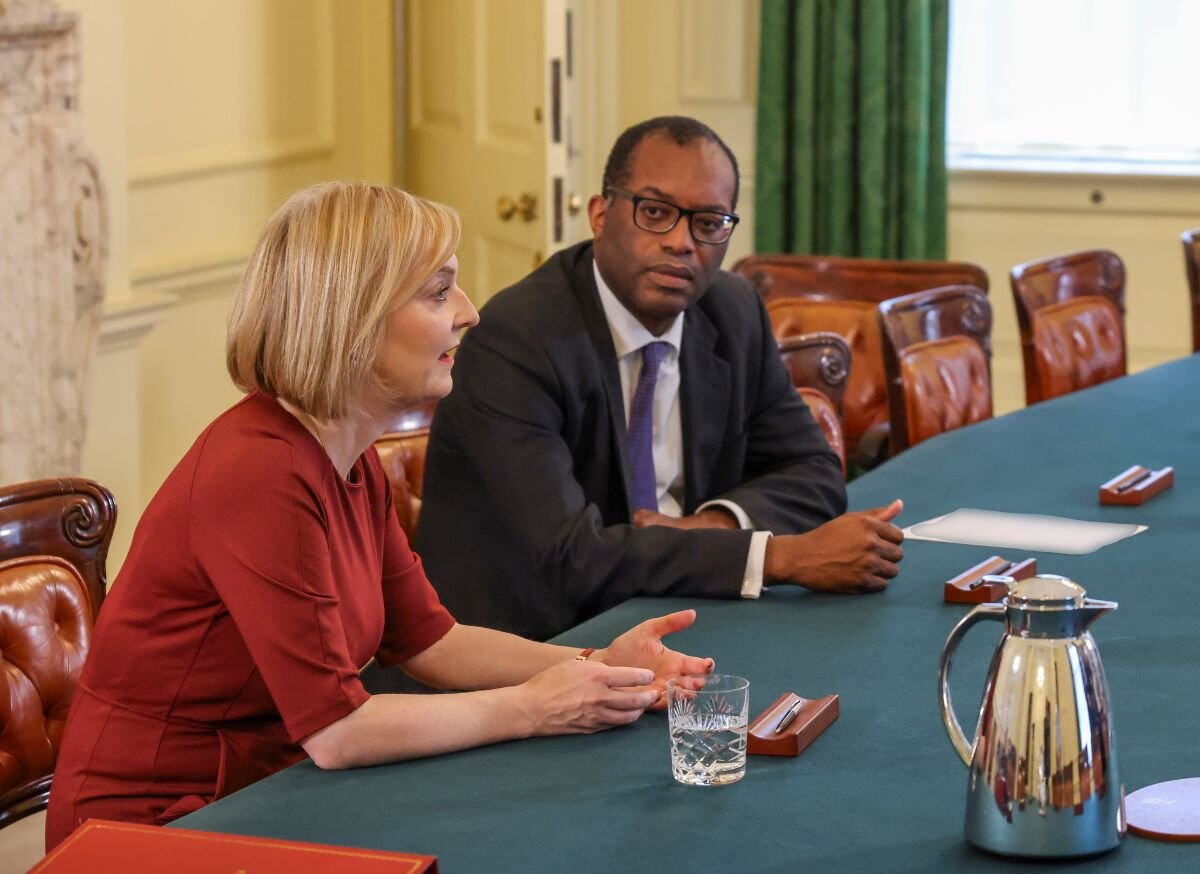Will the UK’s disastrous mini budget impact the pound?
Former US Treasury Secretary Larry Summers said recently that the UK’s disastrous mini budget could prove to be one of the “worst macroeconomic policies of any major country for a long time”.

UK PM Liz Truss and Chancellor Kwasi Kwarteng discuss their Growth Plan ahead of a mini-budget to the House of Commons on 23 September. Photo by Rory Arnold for No 10 Downing Street on flickr.
However, Mr. Steve Barrow, Head of Standard Bank G10 Strategy would not necessarily agree with that. He argues that the decision to hold a referendum on Brexit was even worse, and was committed, of course, by the same Conservative Party, albeit under a different leader. And now the pound is paying the price for the Conservatives shooting themselves in the foot, not once, but twice.
In fairness to the Conservatives, the UK’s political system does grant governments more powers to mess things up than their peers abroad. The US has the checks and balances of the Congressional system; European politic is dominated by coalitions that help curtail the instincts of the more radical politicians. But in the UK, there’s no such checks and balances; particularly once a party wins with an 80-seat majority as the Conservatives did in 2019. This can create an environment where the government seemingly prioritises its own internal politics over that of the country at large. Brexit was a good example of this.
Former Prime Minister Cameron feared that the next Conservative leader would come from the Brexit camp and tried to head off the possibility of the UK being steamrollered into leaving the EU by holding a referendum first in the secure knowledge that the country would choose to stay in. Of course, the country chose to leave but the margin was so small, 52% to 48% that it was essentially split down the middle.
So far, the implications of this decision seem to have been very bad and, unsurprisingly, a significant majority of people now asked about Brexit tend to say that it was not a good deal for the country. Former BoE member Adam Posen has described it as declaring a trade war with yourself, and we don’t think he is far wrong.
But the problem now is that the current Conservatives feel almost compelled to double down on the mistake by setting in train a number of policy actions that are consistent with the UK’s new-found post-Brexit freedom, but which grate enormously with the public and seem to be ill-judged in light of the cost-of-living crisis. Here we are talking about the elimination of the higher tax rate and, in particular, the decision to remove the ceiling on bankers’ bonuses, which was an EU directive.
“The Truss-led government thought that such a tax cutting agenda would play into the hands of the low-tax-loving Conservative Party and help her to avoid the fate of her predecessor Boris Johnson. But even here the government has badly miscalculated (and may be in the process of a reversal on the cut in the top rate of tax)”, said Mr. Steve Barrow.
It seems as if the hole has been dug even deeper. In the long-term, Brexit might prove a masterstroke and the deregulation/tax cuts in this mini budget an equally inspired decision if they can lift economic growth to the 2.5% target that the Truss-led government aspires. But you know what economists say about the long term; we are all dead. And the “life” for the Conservative government looks particularly short as polls suggest a trouncing at the next election which is likely to be in around two years’ time. Of course, things might turn around before then, but we doubt it very much.
“The irony of this is that if the Conservatives really are making plans for the long-term such as Brexit and deregulation/tax cuts, we might never get to find out if they work because the next Labour government will engineer a reversal, certainly in terms of tax cuts, to some extent on deregulation and perhaps even Brexit (although it denies this at the moment). Looked at in this way we could argue that it is the political system that’s to blame not the PM or the Chancellor”, said Mr. Steve Barrow.
Where does all this leave the pound? Mr. Steve Barrow said financial markets won’t cut the government much slack it seems. The pound might not dive but does seem likely to languish in a 1.0-1.10 range against the dollar. The government will undoubtedly try to calm nerves but with a long time to wait until the November 23rd fiscal statement the markets patience could easily run out.








